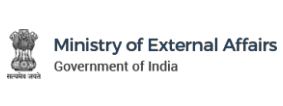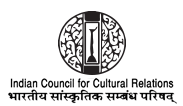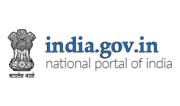Statement by Mr. Pranab Mukherjee, Defence Minister and Head of the Indian Delegation to the General debate of the 61st session of UN General Assembly at the Thirtieth Annual Meeting of Ministers for Foreign Affairs of the Group of 77
New York
September 22, 2006
Madam Chairperson,
At the outset I would like to felicitate South Africa on the outstanding leadership provided to the Group of 77 since the beginning of this year and for promoting the Group’s interests in all UN fora.
I would also like to welcome Pakistan on its election as the Chairman of the Group of 77 for the year 2007. We are confident that Pakistan would effectively pursue the interests of the Group of 77 while protecting the long-standing positions of the Group on issues of vital interest to developing countries.
Madam Chairperson,
The Group continues to face the same underlying systemic challenges that originally brought developing countries together, although the conditions have changed. On the one hand, globalisation has reinforced interdependence among countries. On the other hand, making the process of globalisation fair and equitable continues to remain a major challenge. The current impasse across all areas of negotiations under the Doha round threatens to jeopardize the development prospects of developing countries and is a matter of serious concern for developing countries. If globalisation is inevitable, multilateralism has to be its life sustaining mechanism. Solidarity among developing countries would be crucial in addressing the challenges associated with globalisation.
Progress in international trade and finance has to be measured against the yardsticks of poverty eradication and sustainable development. For many developing countries, the 1990s, the decade in which globalisation came into full force, were a decade of frustration and disappointment. With few exceptions, several economies of the sub-Saharan Africa refused to respond to the structural adjustment policies of the international financial institutions. We believe that developing countries must have the policy space to determine their development plans and priorities based on their individual situations. However, more intense cooperation at the international level, coupled with increased flow of resources, enhanced market access and debt relief, is an absolute imperative. The fulcrum of international economic endeavour is MDG 8 – global partnership for development. In this context we welcome the call for developed countries to achieve the target of 0.7% of GNP as ODA by no later than 2015. We also welcome the agreement reached in the context of development follow-up to the 2005 World Summit to monitor the progress made towards the realisation of this target. We support the extension of further debt relief to highly indebted poor countries [HIPCs] and low-income countries facing problems of financing Millennium Development Goals [MDGs].
The suspension of Doha round of trade negotiations has been disappointing considering the hopes that were raised after the Hong Kong Ministerial. Demands for reduction of de minimis payments by all countries is unacceptable to developing countries with subsistence farming and resource poor farmers. It is also important for developing countries to maintain flexibilities and policy space particularly in the context of NAMA, in order to avoid the danger of deindustrialisation for some developing countries. The overarching principle of special and differential treatment remains a categorical imperative. It is important that resumption of negotiations carry forward the progress made, that precise, effective and operational special and differential treatment for developing countries must be an integral to all aspects of the outcome of the negotiations and the outcome should deliver on the developmental imperatives embodied in the Doha Work Programme.
Madam Chairperson,
The role of science and technology for development cannot be overemphasized. The revolution in information and communication technologies offers us the tool to face the challenges of globalisation. It is ironic that the shrinking of the world as a result of technology and communications should be accompanied by evolution of controls that restrict movement for the peoples of the developing world. Intellectual property rights regimes are also often used as tools to restrict control and deny technologies rather than facilitate their transfer to developing countries. It is imperative that development dimensions are integrated into such regimes as quickly as possible. The international community also needs to find pragmatic ways to promote research and development in developing countries. We welcome the hosting of the meeting of Ministers of Science and Technology of the Members States of the Group of 77 earlier this month in Brazil to address these challenges.
Madam Chairperson,
The UN has an overriding role in the area of development. The 2005 World Summit and the agreements reached for the follow-up on “development” provide us with an opportunity to restore the primacy of the UN in dealing with the development agenda. Enhancing voice and participation of developing countries in international economic decision-making and norm-setting remains a matter of concern. A comprehensive reform of international financial architecture is needed. The development agenda of the UN needs to be an inclusive one, going beyond the Millennium Development Goals and encompassing the outcomes of major UN conferences and summits. The need to address the concerns of the Least Developed Countries, the Landlocked Developing Countries and the Small Island Developing States, can hardly be overemphasized. India has also supported concrete and implementable recommendations in support of the priorities of NEPAD with a substantial outcome for the special needs of Africa.
We support the Economic and Social Council playing its due role in promoting awareness and giving policy guidelines in the area of development cooperation. The central question is one of political will in allowing ECOSOC to discharge its responsibility. An early conclusion of ongoing consultations in the General Assembly on this question, incorporating the G-77 proposals, would be a step in the right direction.
Madam Chairperson,
India is willing to share its expertise, including in frontier areas of science and technology, and is indeed doing so already with several partner countries. We are unwavering in our support for greater South- South
cooperation and the need to continue to enhance our cooperation with our partners in developing countries. The Group of 77 has been a valuable asset for developing countries. We shall remain engaged in exploring cooperative solutions both among ourselves and with the wider international community. I reiterate India’s full support and involvement in this effort.
Thank You, Madam Chairperson.







